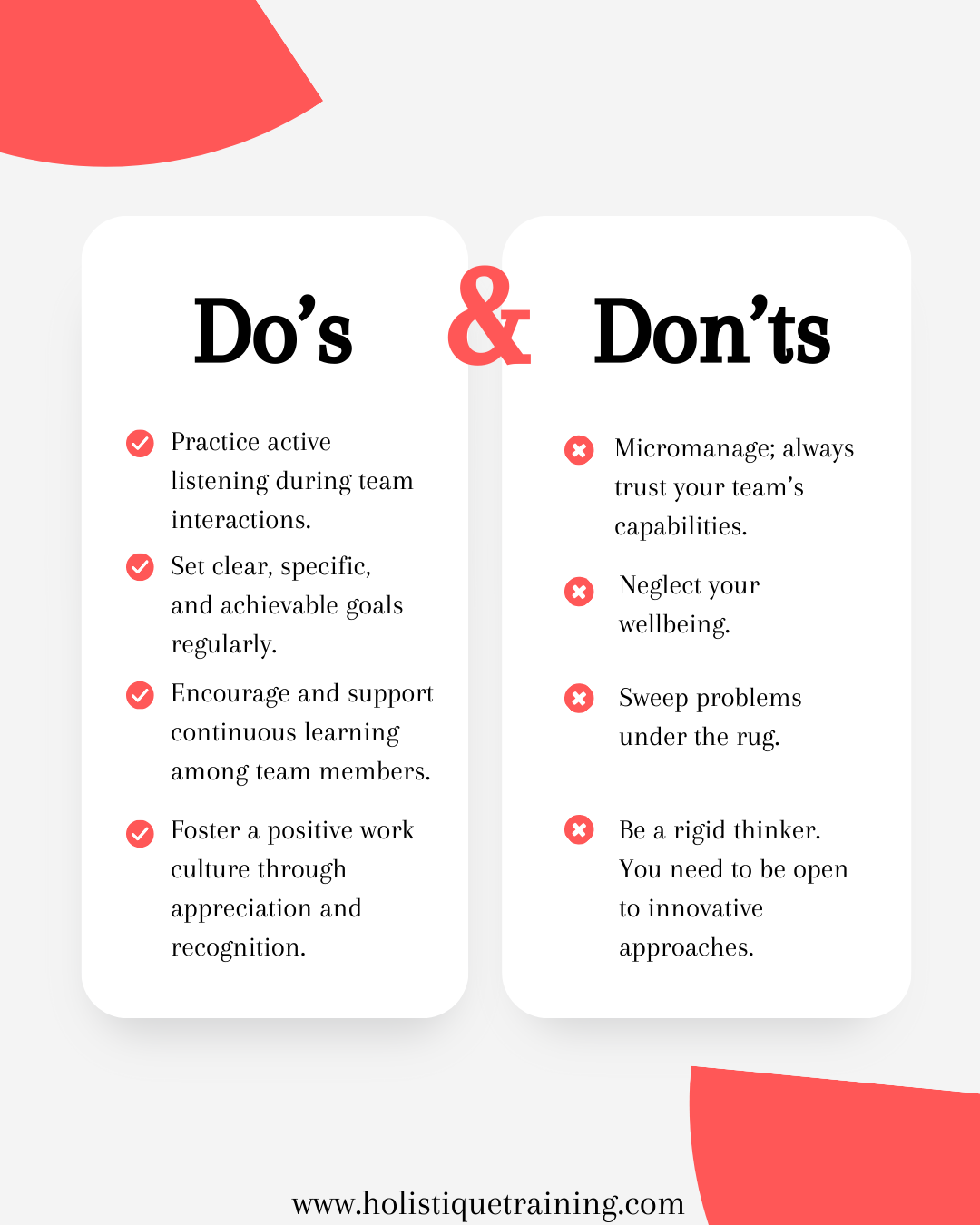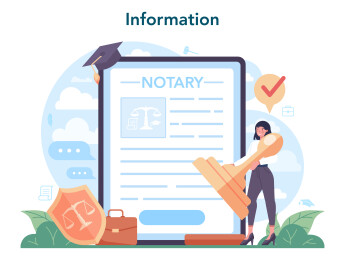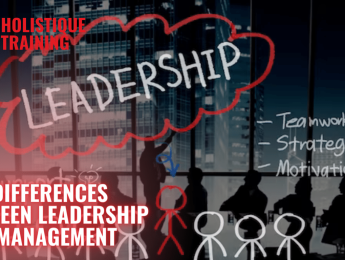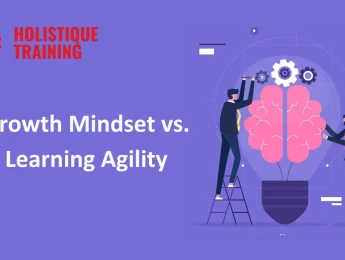- Table of Contents
- Introduction
- What Does Unconscious Leadership Habits Mean?
- Why Are Leadership Habits Important?
- 12 Daily Habits That Separate Good Leaders From Great Leaders
- Bad Leadership Habits
- How to Change and Improve Leadership Habits
- 5 Best Books for Effective Leadership
- How to Leverage Technology to Form Good Leadership Habits
- Conclusion
Introduction
Leadership is not merely a title; it's a lifestyle, a set of unconscious habits that define great leaders. These habits are the building blocks of successful leadership, shaping the way exceptional leaders approach challenges, inspire others, and navigate their professional lives. In this comprehensive guide, we'll explore the world of unconscious leadership habits, understand their significance, and delve into daily rituals that differentiate good leaders from truly exceptional ones. We'll also shed light on detrimental leadership habits and discuss effective strategies to transform and enhance these habits. Furthermore, we'll explore the role of technology and recommend five outstanding books to help you hone your leadership skills.
What Does Unconscious Leadership Habits Mean?
Unconscious leadership habits are the subtle, ingrained behaviours and thought patterns that influence how leaders perceive and respond to various situations. These habits are deeply rooted and often automatic, shaping a leader's decision-making process, communication style, and overall effectiveness. Exceptional leaders possess a keen awareness of their unconscious habits and actively work towards cultivating positive ones that align with their goals and values.
Why Are Leadership Habits Important?
Leadership habits are the invisible threads that weave the fabric of an organisation's culture and success. They are the silent architects shaping the way teams collaborate, communicate, and innovate. But why exactly are these habits so vital in the realm of leadership?
Setting the Tone for the Entire Organisation
Leadership habits serve as a blueprint for the rest of the organisation. When leaders exemplify positive habits, they set a high standard for everyone else to follow. Team members look up to their leaders, emulating their behaviours and attitudes. By displaying traits like effective communication, empathy, and accountability, leaders create an environment where these qualities become the norm rather than the exception.
Fostering Trust and Respect
Trust and respect are the cornerstones of any successful team or organisation. Exceptional leaders cultivate trust by consistently demonstrating integrity, transparency, and reliability. When team members trust their leaders, they feel secure in their decisions, enabling them to work collaboratively and take calculated risks. Respect, on the other hand, is earned through fair treatment, active listening, and recognising the value each team member brings to the table. Leadership habits that prioritise these qualities foster a positive, supportive atmosphere where everyone feels valued and appreciated.
Boosting Team Morale and Engagement
Positive leadership habits have a direct impact on team morale and engagement. When leaders exhibit enthusiasm, passion, and a genuine interest in their team's well-being, they inspire similar sentiments among their employees. Team members are more likely to be motivated and dedicated to their work when they see their leaders fully invested in the organisation's mission. Engaged employees are not just more productive; they are also more creative, collaborative, and committed to the organisation's goals.
Enhancing Decision-Making and Problem-Solving
Leadership habits significantly influence the way decisions are made within an organisation. Leaders with effective decision-making habits weigh the pros and cons thoughtfully, consider various perspectives, and remain open to feedback. By fostering a culture of informed decision-making, leaders empower their teams to explore innovative solutions and address challenges proactively. This collaborative approach enhances problem-solving capabilities, leading to more effective, sustainable solutions.
Driving Organisational Success
Ultimately, leadership habits play a pivotal role in driving organisational success. When leaders consistently exhibit positive habits such as adaptability, resilience, and strategic thinking, they position their organisations to navigate complex, ever-changing business landscapes. These habits enable leaders to anticipate challenges, capitalise on opportunities, and steer the organisation toward its long-term goals. Exceptional leaders, through their habits, create a roadmap for their teams, ensuring they are on the right path to achieving shared objectives and realising the organisation's vision.
In essence, leadership habits are not merely a reflection of individual character; they are a beacon guiding the entire organisation toward greatness. By recognising the importance of these habits and actively cultivating them, leaders can create a thriving, innovative, and resilient organisational culture that stands the test of time.
12 Daily Habits That Separate Good Leaders From Great Leaders
Leadership is not defined by occasional grand gestures but by the consistent, everyday habits that shape a leader's character and influence. Exceptional leaders stand out not because of what they do occasionally, but because of the daily habits they incorporate into their lives. Here are twelve daily habits that set apart good leaders from truly great ones:
1. Start the Day with Purposeful Reflection
Great leaders begin their day with intentional reflection. They take a few moments to set clear goals and priorities, aligning their actions with their long-term vision. This reflective practice allows them to approach the day with focus and determination, ensuring that every task contributes meaningfully to their objectives.
2. Active Listening
Exceptional leaders listen attentively to their team members, clients, and stakeholders. They value diverse perspectives and actively seek input from others. By listening with empathy and an open mind, they create an inclusive environment where everyone's voice is heard and respected.
3. Express Gratitude
Great leaders appreciate the efforts of their team members and express gratitude regularly. They recognise and acknowledge the hard work and dedication of their employees, fostering a positive atmosphere of appreciation and encouragement within the workplace.
4. Set Clear, Achievable Goals
Exceptional leaders set specific, measurable, attainable, relevant, and time-bound (SMART) goals for themselves and their teams. They break down larger objectives into smaller, manageable tasks, creating a roadmap for success. By setting clear goals, they provide direction and motivation to their team members.
5. Prioritise Self-Care
Great leaders understand the importance of self-care for overall well-being. They make time for exercise, relaxation, and hobbies, ensuring they are physically, mentally, and emotionally rejuvenated. Taking care of themselves enables them to lead with vitality and resilience.
6. Encourage Growth and Learning
Exceptional leaders prioritise continuous learning and encourage their team members to do the same. They invest in professional development, attend workshops, read books, and stay updated with industry trends. By fostering a culture of learning, they inspire innovation and adaptability within their teams.
7. Delegate Wisely
Great leaders recognise the value of effective delegation. They trust their team members with responsibilities, empowering them to make decisions and take ownership of their work. Delegating tasks wisely allows leaders to focus on strategic activities that drive the organisation forward.
8. Practice Empathy
Exceptional leaders empathise with the challenges faced by their team members. They put themselves in others' shoes, understanding their perspectives and emotions. Empathy strengthens interpersonal relationships, fosters collaboration, and builds a supportive, cohesive team. In fact, a study conducted by EY showed that a staggering 86% of employees believe that empathetic leadership causes increased morale, and 87% of them say that it is vital for fostering an inclusive workplace.
9. Celebrate Successes, Learn from Failures
Great leaders celebrate achievements, no matter how small, recognising the collective effort of the team. They also view failures as learning opportunities, encouraging a growth mindset within the organisation. By embracing both successes and failures, they create an environment where innovation thrives.
10. Encourage Open Communication
Exceptional leaders promote open, honest communication within their teams. They create a safe space where team members can express their ideas, concerns, and feedback freely. Transparent communication builds trust, resolves conflicts, and ensures everyone is on the same page.
11. Lead by Example
Great leaders lead by example, demonstrating the values and behaviours they expect from their team members. They embody integrity, accountability, and professionalism, setting high standards for themselves. Their actions inspire others and create a positive organisational culture.
12. Reflect and Adjust
Exceptional leaders take time to reflect on their daily interactions and decisions. They evaluate their successes and challenges, seeking opportunities for improvement. This self-reflection allows them to adapt, refine their strategies, and continuously evolve as leaders.
Incorporating these daily habits into their lives, exceptional leaders create a lasting impact not only on their organisations but also on the individuals they lead. By consistently practising these habits, they inspire greatness, foster collaboration, and pave the way for a future where leadership is defined by unwavering commitment and continuous growth.
Bad Leadership Habits
Leadership, though often associated with positive qualities, is not immune to pitfalls. In fact, the impact of bad leadership habits can be detrimental, affecting both individuals and entire organisations. It's crucial to recognise these habits and actively work towards overcoming them to foster a healthy work environment and sustainable success. Here are some common bad leadership habits and their consequences:
1. Micromanagement
Micromanaging is a toxic habit that erodes trust and stifles creativity. Leaders who excessively monitor every detail not only demoralise their team but also hinder innovation. Team members, feeling disempowered, are less likely to take initiative or showcase their full potential. They’re also most likely to quit. In fact, a study conducted by Trinity Solutions as cited by Slingshot, showed that 69% of employees considered changing jobs due to being micromanaged, and 36% actually quit.
2. Lack of Transparency
Leaders who withhold information or are not transparent about decisions create an atmosphere of uncertainty. This lack of transparency can lead to rumours, confusion, and a sense of insecurity among team members. Open communication is vital for building trust and ensuring everyone is aligned with the organisation's goals.
3. Inability to Adapt
Leaders who resist change and cling to outdated methods hinder organisational progress. In today's fast-paced world, adaptability is key to staying relevant and competitive. Leaders who fail to embrace change risk stagnation, decreased productivity, and missed opportunities for growth.
4. Poor Communication Skills
Effective communication is the cornerstone of strong leadership. Leaders who lack communication skills struggle to convey their ideas clearly, leading to misunderstandings and confusion. Miscommunication can result in missed deadlines, misaligned objectives, and strained relationships within the team.
5. Neglecting Employee Well-Being
Leaders who prioritise results over employee well-being risk burnout and high turnover rates. Ignoring the mental, emotional, and physical health of team members leads to decreased morale, decreased productivity, and a negative workplace atmosphere. A caring leader recognises the importance of work-life balance and supports the holistic well-being of their employees.
6. Lack of Accountability
Leaders who fail to take responsibility for their actions set a damaging example for their team. Accountability is crucial for building trust and credibility. When leaders evade responsibility, it creates a culture of blame-shifting, eroding trust among team members and hindering collaboration.
7. Favouritism and Unfair Treatment
Leaders who show favouritism or treat certain team members unfairly create division and resentment within the team. Fairness and equality are essential for a harmonious work environment. When individuals perceive bias, it leads to decreased morale, reduced motivation, and a toxic workplace culture.
8. Lack of Vision
Leaders who lack a clear vision for the future leave their team without direction. A well-defined vision inspires and motivates team members, guiding their efforts toward a common goal. Leaders without vision create confusion, indecisiveness, and a lack of purpose within the organisation.
Recognising these bad leadership habits is the first step towards overcoming them. Leaders can proactively work on improving their skills and behaviours through self-reflection, seeking feedback, and investing in professional development. Embracing positive habits such as active listening, empathy, transparency, and adaptability can help leaders transform their approach and create a positive impact on their teams and organisations. By acknowledging and addressing these challenges, leaders can foster a culture of continuous growth, collaboration, and success.

How to Change and Improve Leadership Habits
Changing and improving leadership habits is a transformative process that requires practical strategies and actionable steps. This won’t happen overnight, though. In fact, according to author and speaker James Clear, it takes 66 days for a specific behaviour to become automatic. Here are some hands-on approaches to help you effectively form and enhance positive habits:
1. Start Small and Be Consistent
Begin by identifying a specific leadership habit you want to cultivate. Break it down into smaller, manageable actions. Focus on practising these actions consistently every day. For example, if you want to improve active listening, start by dedicating a few minutes each day to truly listen to your team members. Over time, this consistent effort will reinforce the habit.
2. Create Reminders and Triggers
Use reminders and triggers to prompt the desired behaviour. Set alarms on your phone, leave sticky notes on your desk, or associate the habit with an existing routine. For instance, if you aim to improve communication, link it to your daily coffee break. Every time you have coffee, make it a habit to check in with team members or send a positive message to reinforce open communication.
3. Practice Visualisation
Visualise yourself embodying the desired habit successfully. Imagine specific situations where you demonstrate the habit effectively. Visualisation enhances self-belief and primes your mind to act in alignment with your vision. Visualising yourself conducting effective team meetings, for instance, can boost your confidence and improve your leadership communication skills.
4. Track Your Progress
Maintain a habit-tracking journal or use mobile apps designed for habit formation. Record your daily efforts, challenges faced, and achievements. Tracking progress provides a tangible record of your improvement journey, motivating you to stay committed. It also helps identify patterns and areas that need more attention, allowing you to adjust your strategies accordingly.
5. Accountability Partners and Support
Share your goals with a trusted colleague, friend, or mentor who can hold you accountable. Regular check-ins with an accountability partner provide encouragement and motivation. Knowing that someone is aware of your progress fosters a sense of responsibility, making you more likely to stay committed to forming the desired habit.
6. Practise Positive Self-Talk
Replace negative self-talk with positive affirmations. Encourage yourself with empowering statements related to your desired habit. For instance, if you're working on delegating tasks effectively, repeat affirmations like "I trust my team to handle tasks efficiently." Positive self-talk builds self-confidence and reinforces the belief that you can successfully develop the targeted habit.
7. Reward Your Achievements
Celebrate your successes, no matter how small. Treat yourself to a favourite snack, indulge in a hobby, or take a short break as a reward for consistently practising the desired habit. Positive reinforcement strengthens neural pathways associated with the habit, making it more likely to become ingrained in your behaviour.
8. Learn from Role Models
Study the habits of successful leaders you admire. Read their biographies, watch interviews, or attend their talks if available. Analyse how they exhibit the desired habit in various situations. Learning from real-life examples provides practical insights and inspiration, offering valuable strategies you can implement in your own leadership journey.
By applying these practical strategies, you can effectively form and improve positive habits. These hands-on approaches provide a roadmap for consistent, sustainable change, ensuring that you not only identify the habits you want to cultivate but also actively integrate them into your daily routines, leading to lasting personal and professional growth.
5 Best Books for Effective Leadership
Books have the power to inspire, educate, and transform, making them invaluable resources for aspiring and seasoned leaders alike. Here's a curated list of five exceptional books that delve into the art and science of effective leadership, offering profound insights, practical strategies, and timeless wisdom.
1. "Leaders Eat Last" by Simon Sinek
In "Leaders Eat Last," Simon Sinek explores the concept of selfless leadership and its profound impact on organisational success. Drawing on real-world examples and scientific research, Sinek reveals how great leaders prioritise the well-being of their team members, fostering trust, collaboration, and innovation. By emphasising the importance of empathy, trust, and a strong sense of purpose, Sinek provides a compelling framework for creating a workplace culture where individuals thrive, making it a must-read for leaders aiming to build cohesive, high-performing teams.
2. "The 7 Habits of Highly Effective People" by Stephen R. Covey
Stephen R. Covey's timeless classic, "The 7 Habits of Highly Effective People," offers transformative principles that empower leaders to achieve lasting success. Covey's book delves into essential habits such as proactive thinking, prioritising tasks, empathetic communication, and continuous self-improvement. By focusing on personal and professional effectiveness, Covey provides readers with practical tools to enhance their leadership skills, fostering positive relationships and driving meaningful outcomes.
3. "Dare to Lead" by Brené Brown
In "Dare to Lead," renowned researcher Brené Brown explores the power of vulnerability and courage in leadership. Brown dismantles common misconceptions about vulnerability, illustrating how it fuels innovation, trust, and resilience within organisations. Through engaging storytelling and research-backed insights, Brown offers actionable strategies for embracing vulnerability, empathetic communication, and daring leadership. This book is essential for leaders seeking to create brave, inclusive workplaces where authenticity and creativity flourish.
4. "Drive: The Surprising Truth About What Motivates Us" by Daniel H. Pink
Daniel H. Pink's "Drive" delves into the science of motivation, challenging traditional beliefs about what drives human behaviour. Pink introduces the concept of intrinsic motivation and explores the three elements—autonomy, mastery, and purpose—that lead to increased engagement and satisfaction. By understanding the psychology of motivation, leaders can inspire their teams to excel, fostering a sense of purpose and fulfilment. Pink's insights are particularly valuable for leaders striving to create environments where individuals are motivated by their passion and personal growth.
5. "Mindset: The New Psychology of Success" by Carol S. Dweck
In "Mindset," psychologist Carol S. Dweck explores the power of mindset—the beliefs individuals hold about their abilities and potential. Dweck distinguishes between a fixed mindset, where talents and intelligence are seen as innate, and a growth mindset, where abilities can be developed through dedication and effort. Leaders who cultivate a growth mindset, both for themselves and their teams, embrace challenges, learn from failures, and foster a culture of continuous learning and resilience. Dweck's book provides valuable insights for leaders striving to create a growth-oriented organisational culture.
Each of these books offers a unique perspective on effective leadership, providing readers with practical tools, inspiring stories, and evidence-based strategies. By delving into these literary treasures, leaders can gain profound insights, refine their skills, and embark on a transformative journey towards becoming exceptional and influential leaders in their respective fields.
How to Leverage Technology to Form Good Leadership Habits
In our fast-paced, technology-driven world, leaders have a wealth of digital tools and resources at their fingertips to enhance their skills and cultivate positive habits. Leveraging technology can significantly aid in forming good leadership habits, providing convenient, accessible, and tailored solutions to support personal and professional growth. Here are practical ways you can harness technology to your advantage:
1. Project Management and Task Tracking Apps
Utilise project management apps like Trello, Asana, or Microsoft Teams to organise tasks, set priorities, and track progress. These tools allow leaders to create detailed to-do lists, assign tasks, set deadlines, and monitor team activities in real-time. By staying organised and accountable, leaders can develop the habit of effective task management, ensuring that projects are completed efficiently and on time.
2. Communication Platforms and Virtual Meetings
Effective communication is a cornerstone of leadership. Technology offers a plethora of communication platforms such as Slack, Microsoft Teams, and Zoom, enabling seamless collaboration and instant messaging. Leaders can conduct virtual team meetings, brainstorming sessions, and one-on-one check-ins, fostering open communication channels. Regular virtual interactions help leaders build strong relationships with their teams, enhance active listening skills, and strengthen their ability to convey ideas clearly and empathetically.
3. Leadership Development Apps and Online Courses
Explore leadership development apps and online learning platforms like Coursera, LinkedIn Learning, and Udemy. These platforms offer specialised courses, webinars, and workshops designed to enhance leadership skills. Leaders can access valuable resources on topics such as emotional intelligence, effective communication, conflict resolution, and strategic decision-making. Engaging with these platforms helps leaders stay updated on the latest leadership trends, providing practical insights and actionable strategies for habit formation and improvement.
Table 1: Technology tools for leadership growth
Tool | Functionality | Key Benefits |
Trello | Project Management and Task Tracking | Organise tasks, set priorities, and monitor progress. |
Slack | Team Communication and Collaboration | Seamless messaging, file sharing, and integrations. |
Coursera | Online Learning and Skill Development | Access to diverse leadership courses and webinars. |
Headspace | Mindfulness and Stress Management | Guided meditations and relaxation techniques. |
SurveyMonkey | Feedback and Performance Evaluation | Conduct surveys, collect feedback, and analyse data. |
4. Digital Journals and Reflection Tools
Cultivate the habit of self-reflection and journaling through digital tools like Evernote for journaling apps. Leaders can document their thoughts, achievements, challenges, and goals in a digital format. Regular reflection enables leaders to gain valuable insights into their behaviours, decisions, and emotional responses. By leveraging digital journals, leaders can track their progress, identify patterns, and refine their strategies for habit development.
5. Mindfulness and Meditation Apps
Practice mindfulness and stress management with meditation apps like Headspace, Calm, or Insight Timer. These apps offer guided meditation sessions, breathing exercises, and relaxation techniques to help leaders manage stress, enhance focus, and develop emotional resilience. Incorporating mindfulness practices into daily routines aids leaders in developing self-awareness, patience, and a calm demeanour, crucial for effective decision-making and fostering positive relationships with team members.
6. Feedback and Performance Evaluation Tools
Utilise feedback and performance evaluation tools to gather insights from team members, peers, and superiors. SurveyMonkey, Google Forms, or specialised performance management software enable leaders to collect anonymous feedback, conduct employee engagement surveys, and assess team dynamics. Analysing feedback helps leaders identify areas for improvement, reinforcing the habit of actively seeking input and valuing diverse perspectives.
7. Personal Development Podcasts and Audiobooks
Listen to leadership-focused podcasts and audiobooks during daily commutes or workout sessions. Platforms like Spotify, Apple Podcasts, and Audible offer a vast array of podcasts and audiobooks covering leadership topics. Listening to expert interviews, success stories, and practical tips provides leaders with continuous inspiration and actionable strategies. Engaging with audio content enhances active learning and encourages leaders to incorporate new ideas into their leadership practices.
By embracing these technological tools and resources, leaders can create a digital ecosystem that supports their journey towards forming good leadership habits. The convenience and accessibility offered by technology empower leaders to develop and reinforce positive behaviours, fostering a culture of continuous improvement and excellence within themselves and their organisations.
Conclusion
Exceptional leadership is not a destination but a continuous journey of self-discovery and growth. By understanding the significance of unconscious leadership habits, actively working on positive behaviours, and leveraging the available resources, leaders can inspire their teams, foster innovation, and drive lasting success. Remember, becoming an exceptional leader is not just about what you achieve; it's about who you become in the process.
And if you're eager to accelerate your journey to leadership mastery, consider enrolling in our exclusive course, ‘Seven Habits of Highly-Effective People.’ Unlock the secrets to transformative leadership, gain invaluable insights, and embark on a path that will redefine your approach, setting you apart as a truly exceptional leader. Embrace the opportunity to refine your skills, inspire change, and achieve unparalleled success in your professional endeavours. Your exceptional leadership story begins now.
























